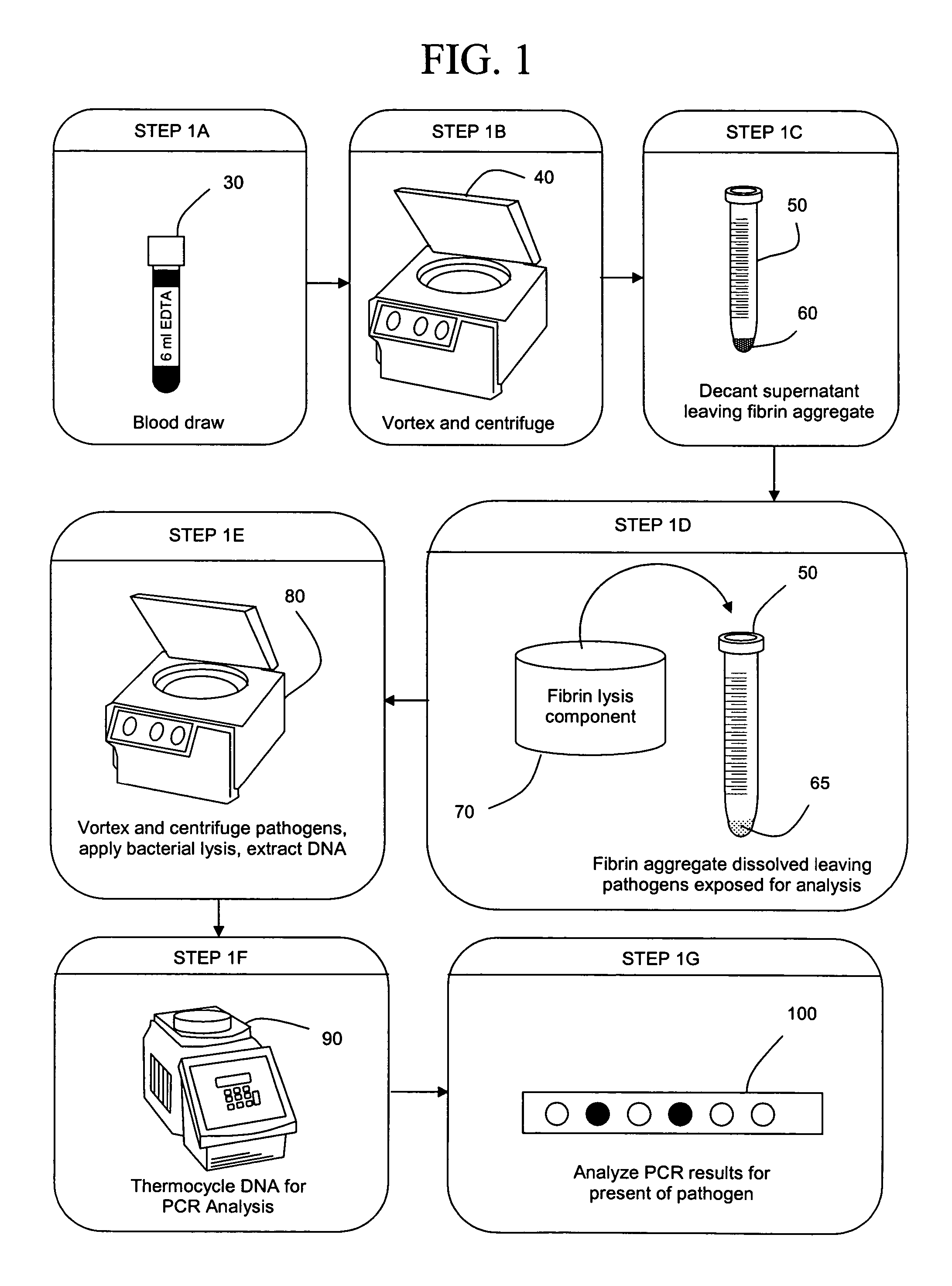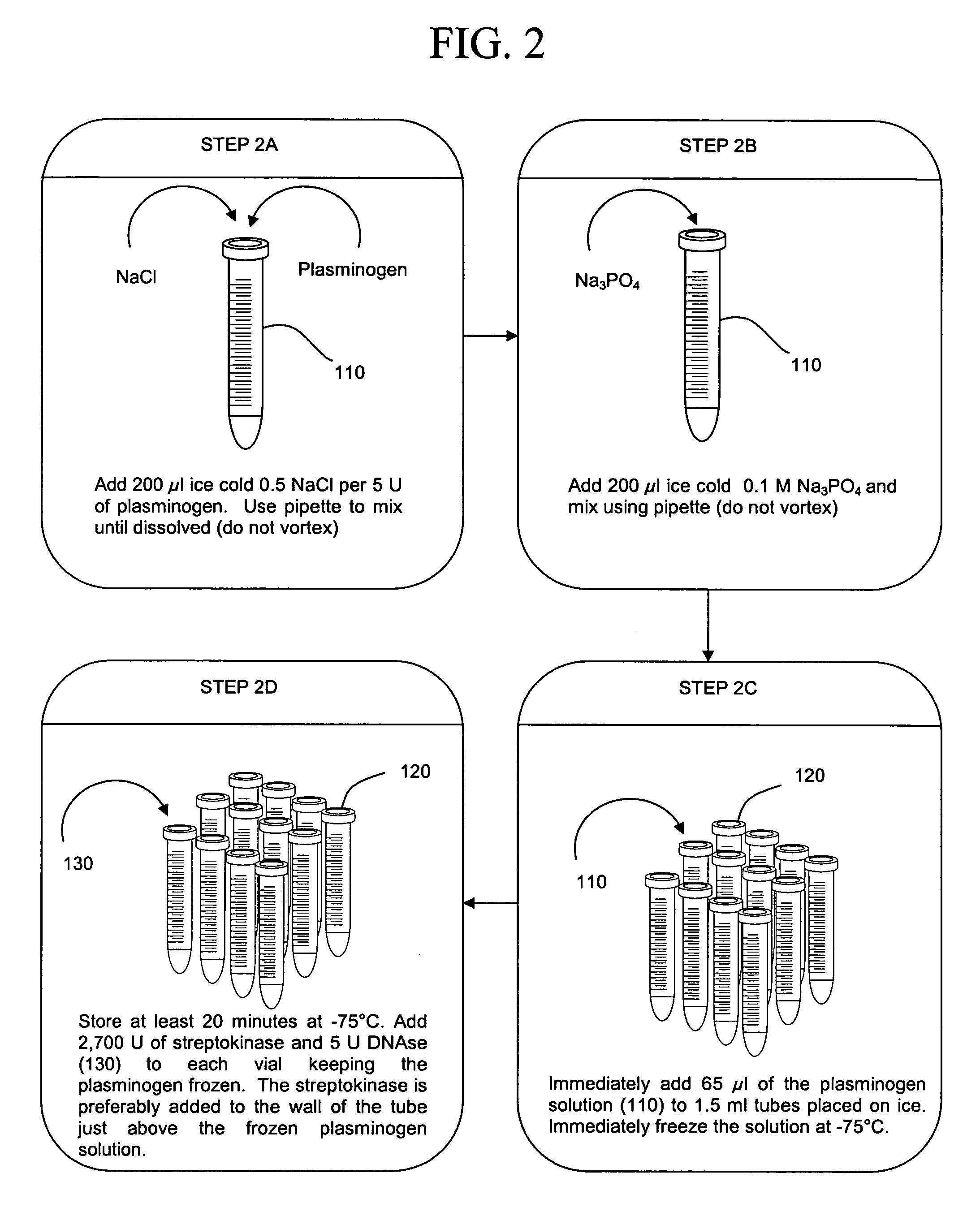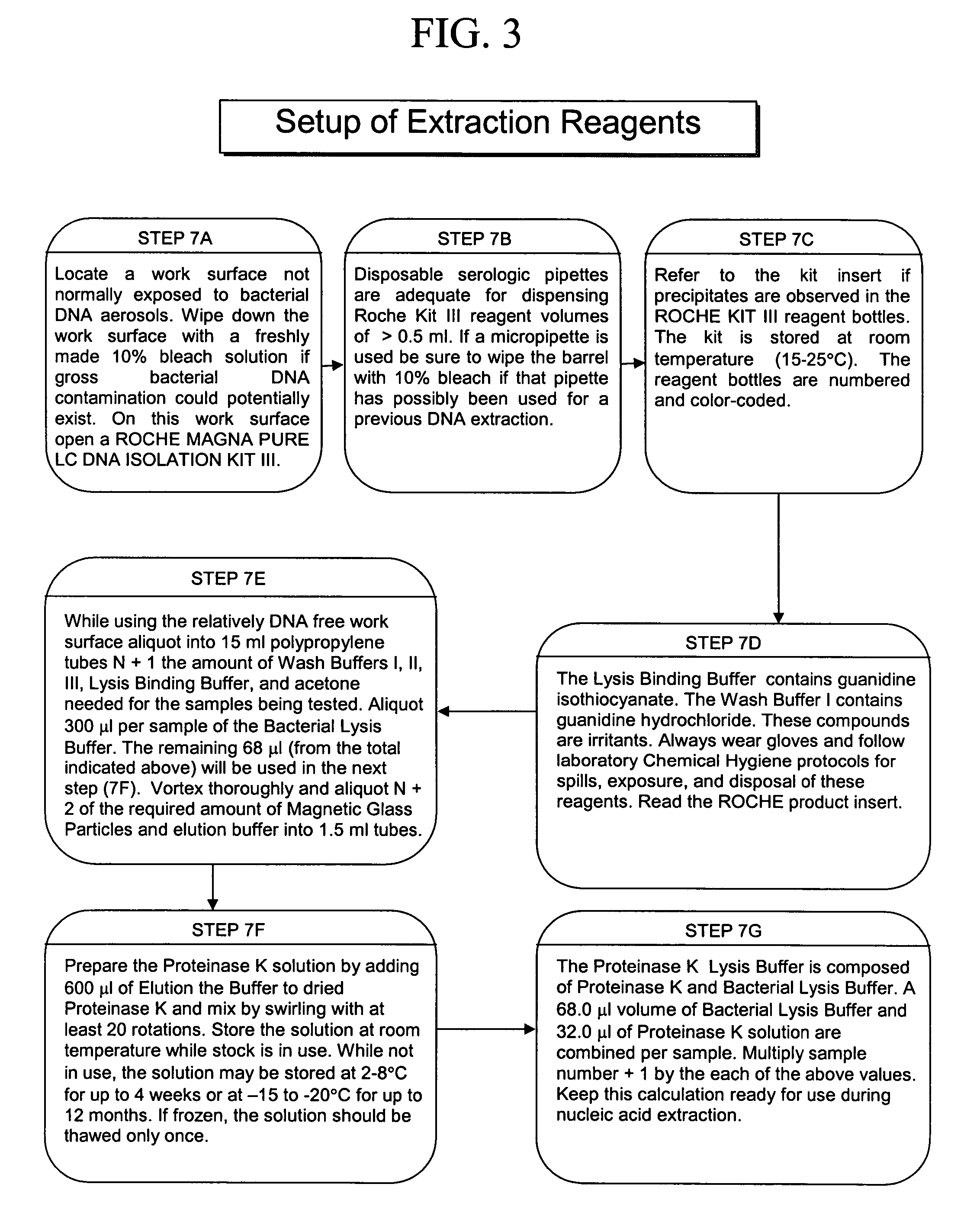Post protein hydrolysis removal of a potent ribonuclease inhibitor and the enzymatic capture of DNA
a ribonuclease inhibitor and enzymatic capture technology, applied in the field of post protein hydrolysis removal of a potent ribonuclease inhibitor and the enzymatic capture of dna, can solve the problems of bioterrorism, rapid increase in the number of bacteria, and death of patients, so as to facilitate the extraction of pathogen dna, facilitate the chemical and physical disruption of pelleted blood elements, and facilitate the digestion of non-pathogen
- Summary
- Abstract
- Description
- Claims
- Application Information
AI Technical Summary
Benefits of technology
Problems solved by technology
Method used
Image
Examples
Embodiment Construction
[0041] The present invention concerns compositions and methods of extracting and detecting infectious pathogens, components thereof, or other matter, such as prions, toxins, metabolic markers, cancerous matter or markers, disease state markers, and the like, from a volume of blood or other biological sample from a patient, such as a human or other mammal. In one embodiment, the method comprises preparing a fibrin aggregate of a blood sample to confine pathogens; contacting the fibrin aggregate with a fibrin lyses reagent to release pathogens or pathogen components trapped in the aggregate; lysing pathogens and / or extracting pathogen nucleic acids or other pathogen components; and detecting the pathogens, nucleic acids and / or components. Pathogen analysis can be accomplished by any appropriate means including, but not limited to, blood culture, antibody based testing, or nucleic acid sequence based testing (PCR, Reverse Transcription PCR, NASBA, TMA or the like).
[0042] In one embodi...
PUM
| Property | Measurement | Unit |
|---|---|---|
| Temperature | aaaaa | aaaaa |
| Temperature | aaaaa | aaaaa |
| Time | aaaaa | aaaaa |
Abstract
Description
Claims
Application Information
 Login to View More
Login to View More - R&D
- Intellectual Property
- Life Sciences
- Materials
- Tech Scout
- Unparalleled Data Quality
- Higher Quality Content
- 60% Fewer Hallucinations
Browse by: Latest US Patents, China's latest patents, Technical Efficacy Thesaurus, Application Domain, Technology Topic, Popular Technical Reports.
© 2025 PatSnap. All rights reserved.Legal|Privacy policy|Modern Slavery Act Transparency Statement|Sitemap|About US| Contact US: help@patsnap.com



